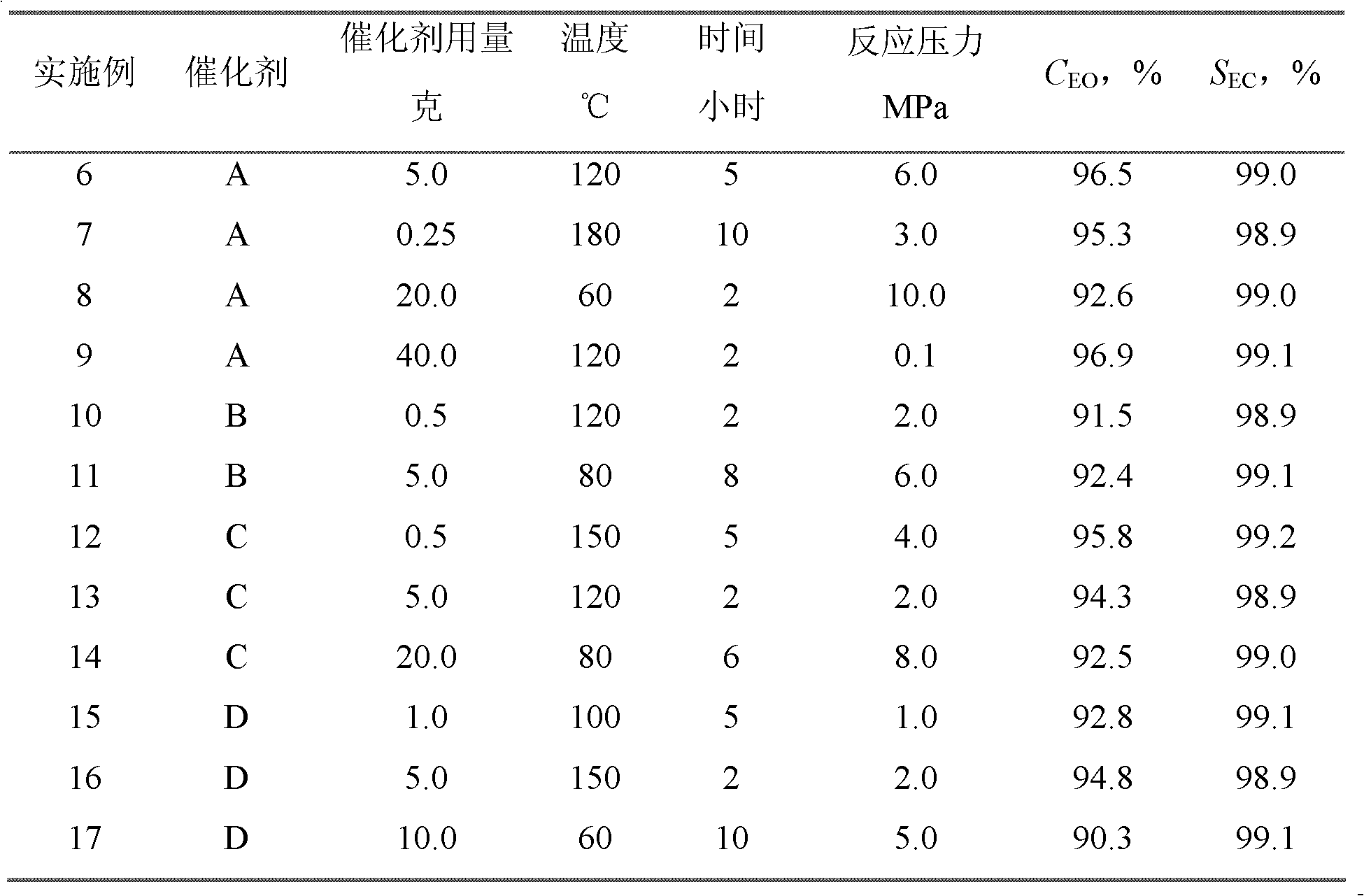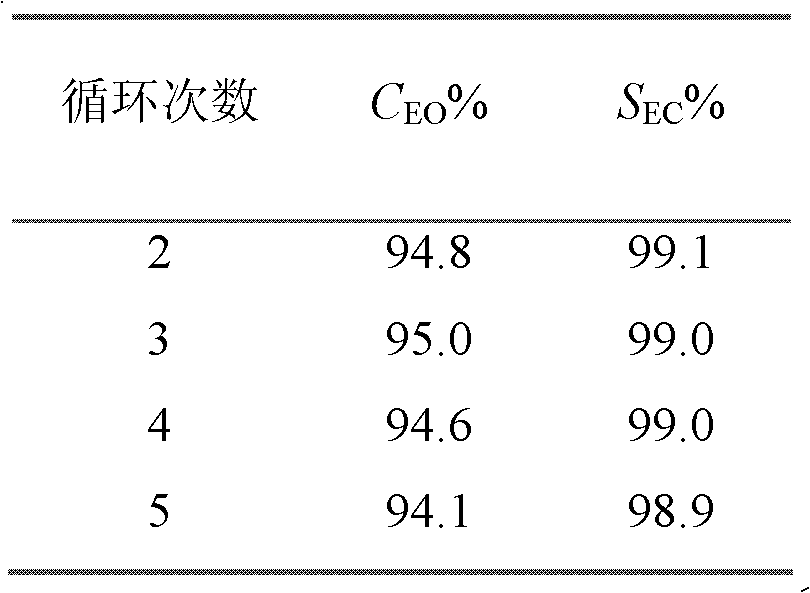Method for preparing alkylene carbonate
A technology of alkylene carbonate and carbon dioxide, applied in chemical instruments and methods, organic compound/hydride/coordination complex catalysts, organic chemistry, etc., can solve problems such as difficult product separation, low catalyst activity, and easy deactivation , to achieve a good technical effect
- Summary
- Abstract
- Description
- Claims
- Application Information
AI Technical Summary
Problems solved by technology
Method used
Image
Examples
Embodiment 1
[0018] In the glove box, 20 grams of PEG with an average molecular weight of 400, 200 milliliters of anhydrous tetrahydrofuran, and 1.9 grams of metal potassium were added to a 500 milliliter three-necked flask, and stirred and refluxed at room temperature for 1 to 4 hours; Merrified resin (100-200 mesh, 2% cross-linking degree, 0.9 mmol Cl / g loading capacity), reflux reaction at 50-80° C. for 6-15 hours. Cool after the reaction, and add methanol and unreacted potassium. Subsequently, the upper liquid was poured out, washed with tetrahydrofuran-hydrochloric acid solution, deionized water, and methanol successively, and dried in vacuo to constant weight to obtain PS-(CH 2 CH 2 O) 9 -H microspheres A. Among them, the Merrified resin is the matrix material of the ion exchange resin catalyst, which is a copolymer of styrene and divinylbenzene, represented by PS.
[0019] Add 10 grams of PS-(CH 2 CH 2 O) 9 -H microspheres, 200 ml of dichloromethane to swell the microspheres,...
Embodiment 2
[0022] Change the resin matrix in [Example 1], use polyalkylene ester, the dosage is 5 grams, the load is 2.82mmolCl / g, the rest of the preparation conditions are the same as [Example 1], and finally M-(CH 2 CH 2 O) 9 -P + Bu 3 Br - Microspheres B.
Embodiment 3
[0024] In the glove box, add 40 grams of PEG with an average molecular weight of 2000, 500 milliliters of anhydrous tetrahydrofuran, and 0.76 grams of metal potassium into a 1000 milliliter three-neck flask, stir and reflux at 45 ° C for 1 to 6 hours; then add 10 grams of tetrahydrofuran The swollen Merrified resin (100-200 mesh, 2% cross-linking degree, 0.9 mmol Cl / g load) is refluxed at 50-90° C. for 10-20 hours. Cool after the reaction, and add methanol and unreacted potassium. Subsequently, the upper liquid was poured out, washed with tetrahydrofuran-hydrochloric acid solution, deionized water, and methanol successively, and dried in vacuo to constant weight to obtain PS-(CH 2 CH 2 O) 45 -H microspheres C.
[0025] Add 10 grams of PS-(CH 2 CH 2 O) 45 -H microspheres, 200 ml of dichloromethane to swell the microspheres, then cool to 0°C, slowly add 10 ml of phosphorus tribromide dropwise, react for 4 to 8 hours; then continue to react at room temperature for 10 to 15 ...
PUM
 Login to View More
Login to View More Abstract
Description
Claims
Application Information
 Login to View More
Login to View More - R&D
- Intellectual Property
- Life Sciences
- Materials
- Tech Scout
- Unparalleled Data Quality
- Higher Quality Content
- 60% Fewer Hallucinations
Browse by: Latest US Patents, China's latest patents, Technical Efficacy Thesaurus, Application Domain, Technology Topic, Popular Technical Reports.
© 2025 PatSnap. All rights reserved.Legal|Privacy policy|Modern Slavery Act Transparency Statement|Sitemap|About US| Contact US: help@patsnap.com


